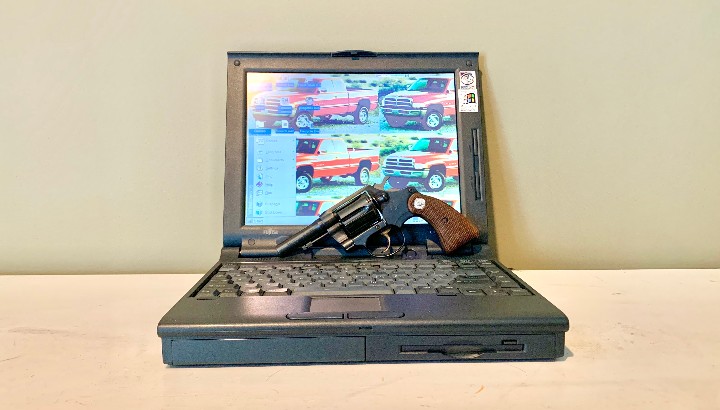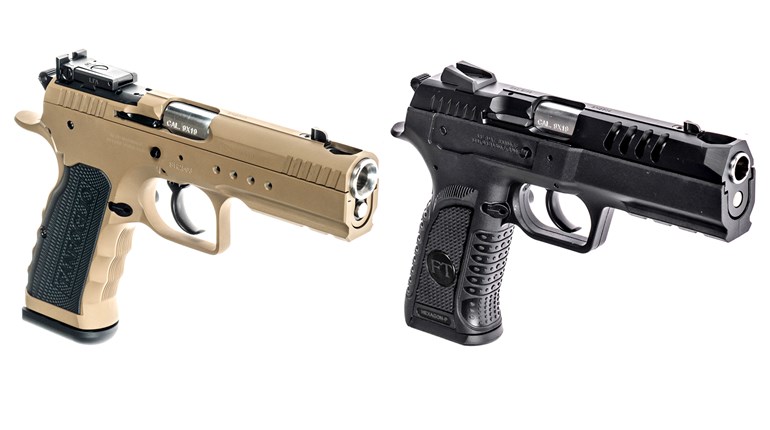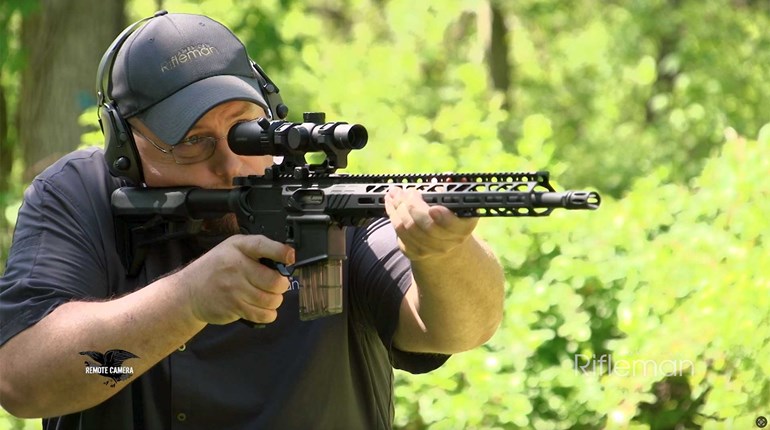
I met a guy I’ll diplomatically describe as a sub-genius, once. OK, I’ve met such guys several times; more than I can count, actually. But this one was in the gun business, so I’d made the mistake of cutting him some slack. If you’re a gun person, I figure you’ve resisted or overcome about a ton of societal pressure, not to mention outright lies, and arrived at your own conclusions. That generally requires some intellectual fortitude.
It wasn’t long into the conversation, though, that this guy stated that marketing people in the gun industry were morons who didn’t know what they were doing. His audience consisted of me--at that time the managing editor of an NRA magazine—and our host, the head of marketing for what was no doubt the world’s most successful handgun manufacturer. I shot a quick glance at my fellow industry veteran and caught his barely perceptible wince.
Turns out the other gentleman was recently arrived in the firearms industry from the computer business. He was now running his own firearm-marketing firm and had wrangled an invite to this industry event, a fact I could tell our host was now regretting. I resisted the urge to light up the guy like a Fourth of July night sky; after all, it wasn’t my event. However, had I done so, I would have pointed out some realities that had somehow escaped him to that point.
I’ve long said that if you plucked a businessman from a typical industry and placed him in the gun industry, he or she wouldn't last for a year. Why? Because the gun industry doesn’t function like any other business. In fact, it’s often—say it with me—counter-intuitive.
Now, to hear him tell it, he had just torn up the computer business (which begged the question of why he’d left). However, using his apparent lack of self-awareness as I measure, I gave the guy six months. In fact, Iooking down I wouldn’t have been surprised to see “L” and “R” written on his shoes. In any event, contrasting his experience in the computer business as the starting point, I’d have asked the following.
Do you—or anyone you know—regularly use a Commodore 64 computer?
No? Why not? I’ll tell you why not. It’s ancient technology, in computer terms. New computers have about an 18-month lifespan on “the cutting edge.” Guns? Obsolescence comes at a glacial pace. If you go afield with a 120-year-old Mauser bolt-action, it’s not too far from being “state-of-the-art.” Oh, it may lack a Picatinny rail or a fiberglass/Kevlar stock, but those aren’t really necessary. The heart of the rifle, the barreled action, is essentially the same as what rolls out of current production. A colleague of mine has, as a home-protection gun, an M1911. Not even an M1911A1, but an early model that’s about a century old. Computers are bought and replaced so quickly, today’s younger purchasers don’t even know what the “Save” icon is supposed to be, having never seen a floppy disk. Bolt-action rifles, pump-action shotguns and single-action semi-automatic pistols are all well over 100 years old. Hell, even America’s Rifle, the AR-15, is in its sixth decade of production. How do you keep selling new versions of something when the old version is virtually as good and almost never wears out?
Computers are incredibly versatile. They can perform calculus, help you compose an opera, allow you to keep in touch with friends and family, etc. That versatility is crucial to sales. But what if the virtue of versatility were largely absent?
Firearms do one thing: They accurately and rapidly propel a projectile some distance with considerable force. But, it’s even more limited than that. Each chambering or gauge has a limited selection of bullets, slugs or shot it can propel and only an established range of energy with which to do it. That’s what results in task specificity and you’d better embrace the concept if you want to sell guns.
A liberal co-worker of mine at another job once asked me why a person needed more than one gun. It had never occurred to him that a dangerous-game gun was different from a squirrel gun, and that both were different from a home-defense gun, which might be different from a carry or competition gun. True, shotguns routinely offer some short-range versatility (and may be marketed that way), but guns are basically tools and the customer has to be convinced not to drive a nail with a socket wrench.
Was your great-grandfather’s computer handed down to you for you to one day hand down to your descendants?
If so, your family’s not sentimental, just cheap. Computers are part of the disposable culture. Guns, though, mean something. That first gifted gun is a rite of passage. It means you’ve achieved a level of maturity, that you are not a threat to yourself or others, that you appreciate the value of life and the permanence of consequences. It means you are recognized as a strong link in the familial chain.
I used to edit the “I Have This Old Gun” department in American Rifleman. Hand-written submissions frankly drew a tear, describing the .22 taken to school during the Great Depression so the boy could hunt for the family dinner on the way home. Or there’d be a lump in your throat reading how the Vietnam recruit, ready to deploy, accepted from his father something wrapped in a towel; unfolded it to find his grandfather’s M1911A1—and knew it meant “I love you” more than words.
Are computers mentioned in the Bill of Rights?
Not explicitly, whereas "arms" are—and for a reason. Guns give teeth to the rest of the rights. Guns quite simply acknowledge the value of the citizen, and their right to protect themselves against anyone or anything, including his or her own government. Oh, we may comply with quarantine recommendations and the like, but only as a moral obligation of good citizenship, not by the compulsion of an armed, overreaching government. Again, guns mean something.
What compels the purchase of a computer?
Convenience? Status? Acquisitiveness? Those things can motivate gun purchases, too. But do you know what a motivator (one of many, but a big one) behind gun buying is? Fear. Pure, simple fear. The fear for your life, the lives of your loved ones, the safety of your community, the fear of tyranny, the fear of being unprepared. It’s a powerful, powerful force—one rarely, if ever, felt by someone shopping for a laptop.
Are there any restrictions on where and how you can advertise a computer?
Computers are advertised everywhere—but what if they couldn’t be? What if they were limited to endemic advertising; in other words, only in computer or electronics magazines? What if you couldn’t buy time on most television networks or radio stations, or print ads in most magazines and newspapers? How, exactly, are you going to apply your vaunted marketing savvy when you’re not allowed to market anywhere?
Are computer sales routinely driven by local, state and federal elections? By presidential press conferences? As a response to crime? Or to pandemics?
It’s not just the fear of coming to physical harm that drives gun sales. There is also the fear of not being able to acquire guns. When there is a high-profile crime in the country—a fairly rare event despite the excess coverage given to such outliers by the press—citizens in other countries are sometimes surprised that Americans don’t immediately renounce gun ownership, but instead flock to gun stores. It’s not that we suddenly need to protect ourselves from a wave of violent crime, it’s because we know there’ll be political pressure to ban guns and so we hurry to buy them while we still can.
The same thing happens when an anti-gun chief executive is elected and Democrats achieve critical mass in Congress or in statehouses. The gun industry frequently finds itself in the contradictory position of fighting alongside NRA for gun rights and Second Amendment-supporting politicians knowing that if we are successful, gun sales will likely tank. How long was there a glut of modern sporting rifles in inventory after Hillary lost? Trump’s wildly cheered, gun-owner-enabled victory nonetheless resulted in the industry’s “Trump Slump” in terms of sales.
You really don’t have to look any further than COVID-19 to see how crazy the business can be. At the very moment the economy was coming crashing down around the nation’s collective ears due to stay-at-home orders and forced closings, gun sales in March 2020 set an all-time record. Counter-intuitive? Rather.
Is there an enormous, well-funded anti-computer lobby that will sink to any depth, tell any lie and exploit any tragedy to ban computers?
No? Would the chief funder of such a lobby have the gall to seek the presidential nomination of a major party? Would the lobby see that computers are banned, not just on school property, but anywhere near a school? Would it succeed in indoctrinating children against computers? Could it get Hollywood stars not only to speak out against computers, but to depict computers and computer owners as agents of violence and evil? Would it threaten with boycotts any company tangentially associated with computers? Could such a lobby demand that elected politicians simply ignore the U.S. Constitution?
Does a memo from a governmental agency determine if your computer is suddenly restricted or illegal to sell?
What if you spent years developing a product, came up with prototypes, tested and retested it at great cost, then introduced your product to the market only to have it suddenly restricted or even banned because a bureaucrat decided to write a memo changing the interpretation of a regulation? You could be bankrupted with the stroke of a pen. Sorry, but all the marketing skill in the world wouldn’t help if the product you were marketing were suddenly deemed verboten.
As I said, a veteran businessman coming over from another industry would have trouble lasting in the gun business. It is not like other businesses in the durability of the product, the historical importance of the product, the emotional attachment to the product, the political passions—both pro and con—aroused by the product and mutable government regulation of the product. If this marketing guy (I really don’t remember his name, having immediately torn up his business card) wasn’t able to trace the very steep learning curve, he was going to regret trading silicon for gun steel.





































